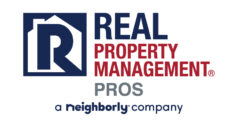Brrrr. Northern Virginia may not be buried under six feet of snow like some other places, but it sure is cold. And it’s just going to get colder. Homeowners everywhere are breaking out their caulk guns, tuning up their HVAC systems, and reinforcing attic insulation, but your tenants must look to you — the landlord — to perform these, and other winterization tasks.
Winterizing your rental home will not only lower energy bills and reduce air pollution, so too will the necessity for costly repairs come spring become diminished.
Prepare for freezing temperatures.
- Clear all debris from the roof of the house, and replace any loose shingles.
- Snow is unavoidable, but branches that fall under the weight of heavy ice are not. Take some time this fall to trim any tree branches that hang too close to your home.
- Sometimes, pipes freeze. And sometimes, frozen pipes burst. No one wins in that situation. Pipe-specific insulation will keep water flowing as it should all winter long.
Check for drafts.
Just the thought of drafty winter air seeping in through wall joints, light fixtures, electrical outlets, windows, and the attic makes me cold. Brrr. Nearly a third of every home’s heat is lost due to cracks and holes found under doors and around windows; that could mean an increase of 50 to 75 percent in your tenant’s heating bill.
To check these areas for errant air, run a wet finger along the area, or use a bright flashlight to see if any light shines through.
Seal any air leaks found.
- Use weather-stripping to seal gaps and minimize the unwanted circulation of air. Keep in mind, though, that this is a quick, temporary fix.
- For a more permanent solution to a more prominent problem, you may need to install additional insulation or replacement windows.
- Consider a roll-on window insulation kit. These are easy to install, and will cover windows with a transparent film designed to keep the warm air in, and the cold air out.
- If you’ve done all this, and your tenant still complains of cold, draft conditions, encourage him to place a thin piece of cardboard, or fabric bunting under closed doors as a barrier.
Check your heating system.
- Have your HVAC system inspected by a certified professional.
- Vacuum all vents and replace furnace filters as necessary.
- Fireplaces and woodstoves should be inspected and cleaned for proper efficiency. Regular routine maintenance will ensure that conditions are safe for use, and can prevent the need for costly repairs down the road.
